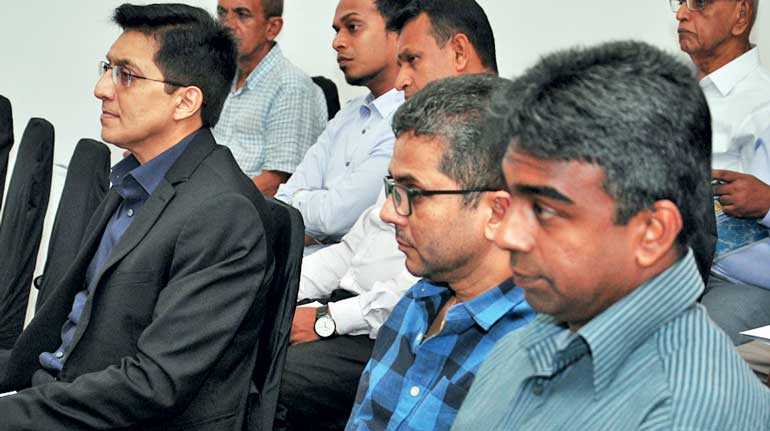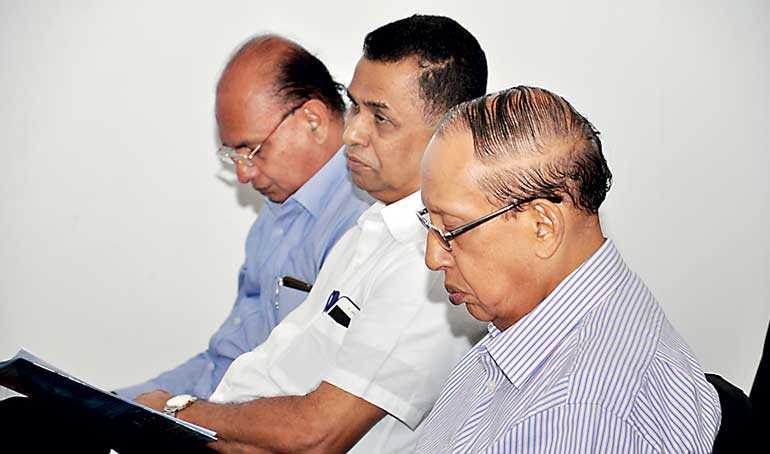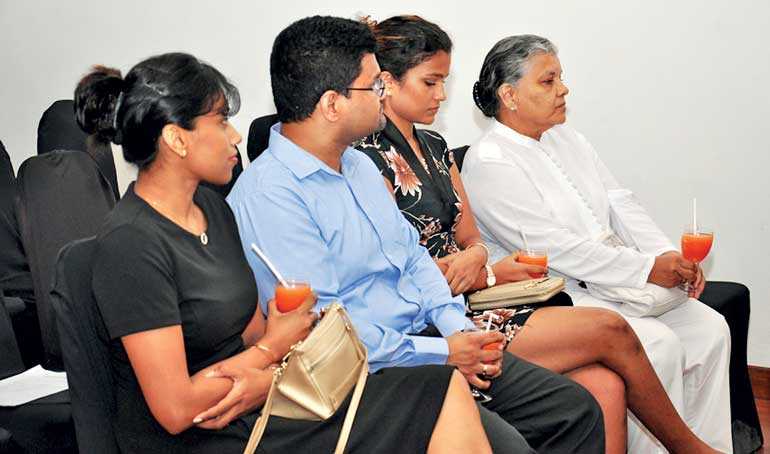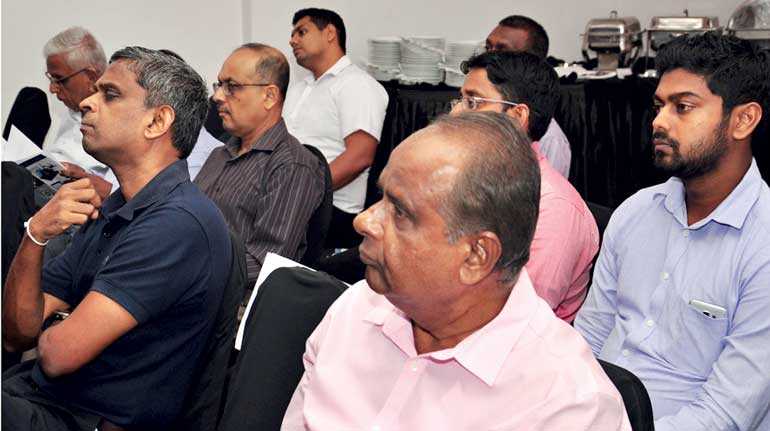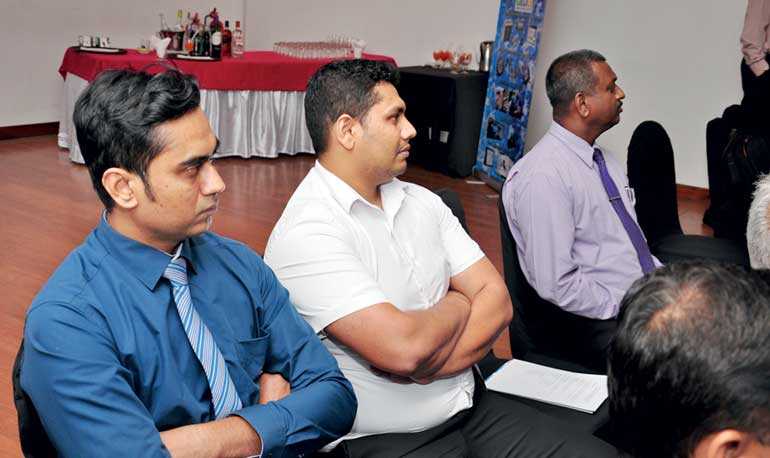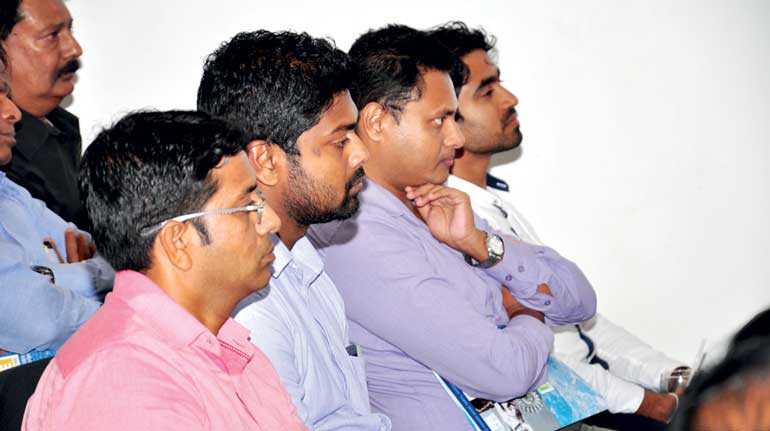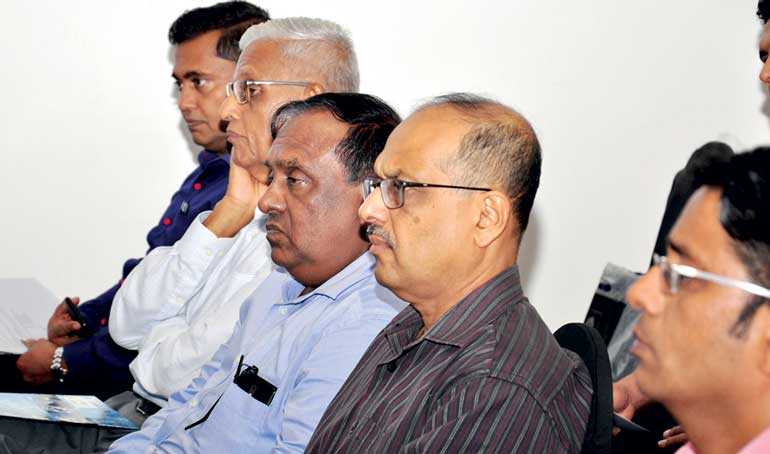Friday Feb 20, 2026
Friday Feb 20, 2026
Thursday, 18 October 2018 00:00 - - {{hitsCtrl.values.hits}}
Small Hydro Power Developers Association (SHPDA) President Eng. Prabath Wickramasinghe recently warned that a host of unresolved burning issues were hindering the industry, which is catering to 8% of national demand of electricity generation. The plethora of challenges faced as well as initiatives to further enhance the industry was highlighted by Wickramasinghe during his address at the SHPDA’s 11th Annual General Meeting. Here are excerpts of the address:
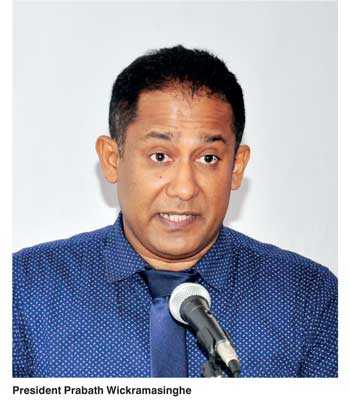 Being the official collective voice of small hydropower developers in Sri Lanka, it is my privilege to welcome you here for this annual event now held for the 11th consecutive year. At the outset, I wish to thank the membership for the trust they have placed on the Executive Committee and myself to take offices for another year to move forward and resolve the burning issues which remains unsettled.
Being the official collective voice of small hydropower developers in Sri Lanka, it is my privilege to welcome you here for this annual event now held for the 11th consecutive year. At the outset, I wish to thank the membership for the trust they have placed on the Executive Committee and myself to take offices for another year to move forward and resolve the burning issues which remains unsettled.

Our membership now covers 75% of the overall population of small hydropower plants. Presently there are 210 individual plants with a combined capacity of 360MW. We cater for approximately 8% of the annual national demand of electricity generation of Sri Lanka with annual energy delivery of close to 1,160 million units. This is slightly more than what Vitoria and Randenigala power stations produce every year.
The year 2017 and 2018 had been one of the most challenging years for our sector. Unresolved burning issues are hindering the development of the industry. The association has been working tirelessly on the concerns of our membership. Being a voluntarily driven body, I salute the Executive Committee for their dedication and commit towards contributing their valuable time and resources to achieve our common goals.
Out of many unresolved issues, the most dangerous to the sector is the temporary suspension by CEB for the issuance of LOIs, Extension of LOIs and signing of SPPAs. The reason set forth is the interpretation given by the Attorney General Department on the Clause 13 of the Electricity Act No. 31 of 2013. During the last three years, the association tried several options and finally embarked on pushing the Ministry of Power and Renewable Energy to draft an amendment to remove the ambiguity existed in the Act and to prepare and submit a Cabinet Paper.
Presently this is submitted to the Parliament and is ready for the approval. This issue will finally be resolved once the Parliament passes the amendment requested by the Ministry of Power and Renewable Energy.
I would like to express that the stated amendment by all means is not the foremost solution we were aiming to achieve. However, it gives a solution in general to small hydro and dendro power. It may sometimes be even temporary solution due to inclusion of resource mapping terminology. But I want to stress that due to complexity of the Act and also due to interest of many parties such as CEB and SEA, amending an Act to fulfil the obligations and expectations of all may not be practical. Therefore, the association took the view that we need some solution to prevent the industry becoming virtually dead.
Many of us and general public do not know the penalty they have to pay due to temporary suspension of our industry over the last three years. It is more than Rs. 3 billion loss to the Government every year. Especially under the light of present increase of US Dollar, it may be even higher.
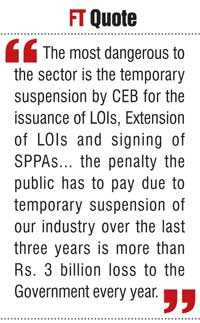
The small hydropower industry before year 2015 was developing at a rate of approximately 25 to 30MW per year. Over the last three years, total of 90MW capacity of mini hydropower projects which would have easily developed did not happen. Therefore CEB has no option but to buy from thermal power plants at a rate of above Rs. 24. The mini hydro industry is the cheapest compared to all private renewable energy producers in Sri Lanka. Our average cost is below Rs. 14. Therefore, the financial impact in the next year of non-implementation of this 90MW of mini hydro power projects to the Government is Rs. 3 billion.
I call upon all regulated bodies and stakeholders governed by the Electricity Act to join hands to pass this amendment in Parliament without further complicating the amendment. It may not be the perfect solution we are searching, but we need a solution very fast. More than 500 permanent employees in the small hydropower industry have lost jobs during the last three years due to non-issuance of new licenses from CEB.
Due to subsidised cost of electricity special in the domestic tariff, the general public has no or very little sense about the actual cost of electricity. This is another problem faced by the renewable energy industry in Sri Lanka. If the real cost of electricity and the reciprocal effect it has in bringing further widening the balance of payment of Sri Lanka is let known to the general public, they would have a more favourable response for our projects.
For instance every year, mini hydropower projects save foreign exchange equal to remittances from 46,000 workers who go to Middle East to work as domestic workers. If we could retain 46,000 of our mothers from not going to Middle East but stay with their families, it will resolve so many social issues our society is facing today. If strong media power can showcase such comparisons, it can make our industry earn more respect and red tape will also be lifted.
Invariably, the media has a major role to play in this regard. Unfortunately, the Sri Lankan media is more interested in showing endless political gossip, murders, road accidents, and latest drama is conspiracies over assassinations.
The uncertain situation faced by the plants which completed 15-year contracts with CEB has been finally resolved. As many of you know, the contract period of selling agreement was limited to 15 years for projects started before year 2008. After completion of this initial 15 years, there was no proper methodology to purchase power from our plants. The option available was to feed at a rate equal to the 3rd tier of three tier tariff amounting to little higher than Rs. 5/kWh.
Continuous negotiations were carried out by the association with the CEB and the Ministry for more than five years and ultimately we were able to influence the Ministry to appoint a Committee in 2014 to determine a tariff for 15+ SHP plants. Thereafter continuous meetings were carried out with the Committee and the Ministry to finalise the report with a reasonable rate and then to prepare and a Cabinet Paper on this issue.
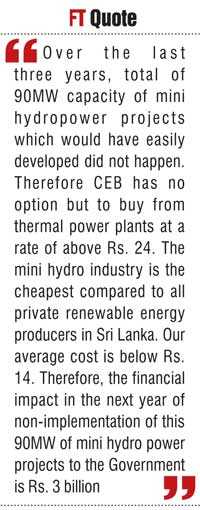

Further, representations were made to Ministry of National Policy and Economic Affairs and Ministry of Finance and Mass Media to correct some of the parameters and recommendations of the tariff committee. The Cabinet Paper was finally approved and presently the Ministry of Power and Renewable Energy has forward the approval to the CEB for implementation. The CEB Board paper is presently under preparation for approval by the Board of Directors of CEB. We are of the view that first SPPA could be signed within a matter of weeks.
I would like to inform the membership that it’s your duty to write to SEA and PUCSL and obtain their no-objection letters before you submit the application to renew your Power Purchase Agreement for another 20 years.
I respect my colleague Anil Makalnada for the leadership he gave for this matter. He proved to us that nothing is impossible, you only need commitment, courage and self-motivation. He also proved to us that he is not too old, as we think! For the dedication and leadership he gave all of us, I would like to name this 15 plus tariff in his name ‘Anil Makalanda Tariff’.
Our industry and developers are an easy target of dollar-funded environmental lobby groups. They hit our industry for their own benefit. There are 210 small hydropower plants in Sri Lanka. Only four to five plants have social or environmental issues. But, so-called NGOs try to forecast a very gloomy picture for the entire sector. The association has taken a few steps to create public awareness against such negative publicity through print and electronic media. However, it is required to conduct continuous media campaigns against these forces. In this regard we plan to embark on a project, soon after the license issuance process is streamlined.
The previously-enjoyed BOI Concessions for Mini Hydro Power Projects had been taken out and therefore developers today are faced with paying VAT, PAL, Duty and Cess at the point of import and Income Tax in the range of 20%-28% of the profit. The imposition of the above massive tax burden has made potential investors move away from this sector.
The association has embarked on a project to re-establish the previously granted VAT, PAL, Duty, Cess waivers and also to re-establish the BOI Concessions on Income Tax granted before year 2015 on the profits attribute to shareholders. The planned activities will first aim at the oncoming 2018/2019 Budget where the association will submit the policy paper to the Ministry of Finance and Mass Media.
Some members have volunteered and planted trees in the upper catchment areas of their respective projects. This has attracted the attention of Forest Department and Divisional Secretaries of the area. The association is in the process of preparation a formal process to release unused land in the upper catchment (and river banks) to plant trees at the cost of the developers who use the river downstream. This project needs more human resources and financial support for implementation.
Considering the utmost importance of the issues stated above, the association wishes to invite all those who are engaged in mini hydropower development to team up with us to support the above projects. The support from the members could be either by active participation by utilising the time and effort for the projects or by donating financial support.
As a voluntarily driven body, the only way that the association could embark on the projects listed above is only through the support of the industry. Therefore, we kindly request you to provide us with the strength and backing to achieve our common goals.
We have come a long way since the inception of our association. I would like to mention Premasiri Sumanasekera, who is the pioneer and father of our industry in Sri Lanka. I also like to mention Sunil De Silva who left us last year, an engineer and a very senior banker who has helped many early developers of our sector. They have taught us lessons for life through their dedication to this industry. Following their footsteps, we strive not to fall back against the forces that try to slow our momentum.
